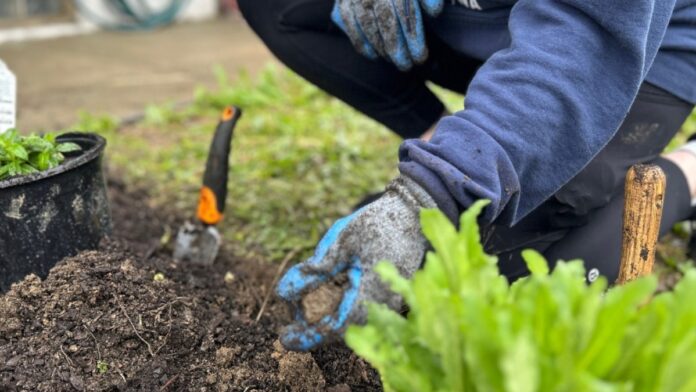A once-vacant field on Megargee Street in Northeast Philadelphia is blossoming into a community garden thanks to the efforts of Heroic Gardens, a nonprofit dedicated to supporting veterans through horticulture therapy.
The acre-sized project aims to provide a space for healing, community building, and job opportunities for local veterans.
View this post on Instagram
Mike Peterman, a U.S. Army veteran, credits gardening for helping him cope with PTSD.
After leaving the military in 2006, Peterman struggled to find direction until he began working with the soil in 2009.
He shared how gardening helped him slow down and rediscover purpose, filling what he described as “a giant hole” left by his transition to civilian life.
Collie Turner, founder and executive director of Heroic Gardens, created the organization in honor of her grandfather, a World War II medic.
Turner believes the act of nurturing the land enables veterans to nurture themselves.
The garden began with volunteers using a no-till, “lasagna-style” method, layering compostable materials like cardboard and leaves to enrich the soil.
Spring flower bulbs have already been planted, and plans are underway to grow sunflowers next May.
The field will open to the public by July 2024 and will support a workforce initiative employing six to twelve veterans.
The project is especially meaningful to volunteer Joe Cartin, whose family has a long history of military service.
Cartin views his participation as a way to honor his late cousin, a veteran and firefighter who died by suicide.
Veterans like John Pilat, who served in the Navy, find solace in the garden’s mission.
Pilat has been involved with Heroic Gardens for years, participating in their workshops and helping install raised-bed gardens for veterans’ homes.
He sees the organization as a unique resource that combines mental health support with practical skills like nutrition and self-care through gardening.
The initiative also includes plans for a “You Pick Sunflower” field, symbolizing support for the troops.
Turner envisions the field as a striking visual tribute, even from a satellite view.
But beyond aesthetics, the project’s goal is to empower veterans through agriculture and horticulture, creating a sustainable model for workforce development.
Nathan McWilliams of the Riverfront North Partnership believes initiatives like this are essential for overall community well-being.
And for veterans, the sense of community and responsibility cultivated in the garden provides a pathway to healing and purpose.
By turning this empty space into a flourishing garden, Heroic Gardens is planting seeds of hope and resilience for Philadelphia’s veteran community, one flower at a time.





